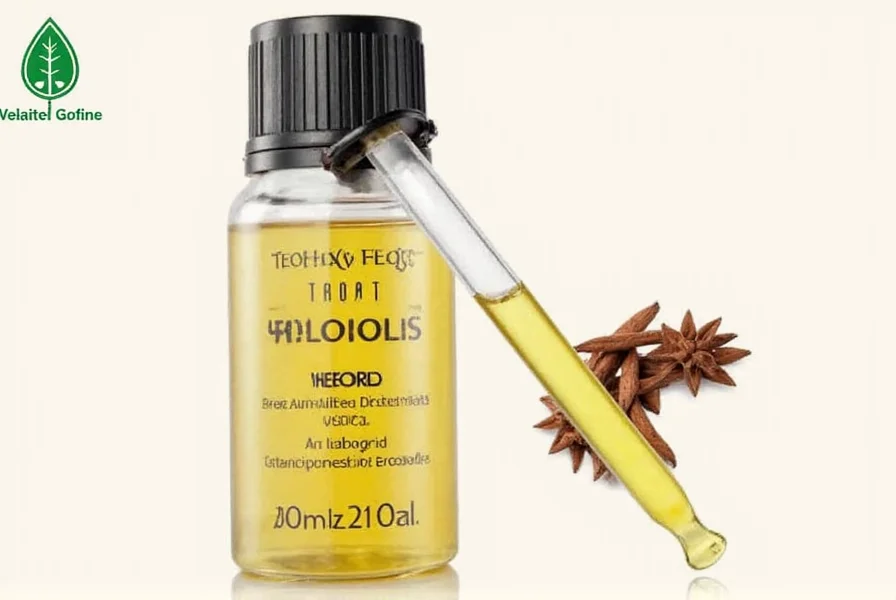When experiencing tooth pain, many people seek natural remedies for immediate relief. Clove oil, containing eugenol as its active ingredient, has been used for centuries as a temporary solution for dental discomfort. This guide provides factual information about where to purchase clove oil specifically for dental use, how to use it safely, and what to consider when selecting a quality product.
Understanding Clove Oil for Dental Applications
Clove oil's effectiveness for tooth pain comes from eugenol, a natural compound with analgesic and antiseptic properties. When applied properly, it can numb the affected area and reduce inflammation. However, it's crucial to understand that clove oil provides only temporary relief and should never replace professional dental care for underlying issues.
Where to Purchase Clove Oil for Tooth Pain
Several reliable options exist for purchasing clove oil specifically for dental applications. The following table outlines where to buy clove oil for toothache relief:
| Purchase Location | Product Availability | Price Range | Quality Considerations |
|---|---|---|---|
| Major Pharmacies (CVS, Walgreens) | Widely available in pain relief section | $5-$12 | Look for dental-specific formulations |
| Health Food Stores (Whole Foods) | Organic and therapeutic grade options | $8-$15 | Check for purity and eugenol content |
| Online Retailers (Amazon) | Multiple brands and concentrations | $6-$20 | Read reviews and verify seller reputation |
| Specialty Dental Supply Stores | Dental-specific formulations | $10-$25 | Often higher purity standards |
How to Select Quality Clove Oil for Dental Use
Not all clove oil products are equally effective for tooth pain relief. When searching for where to buy clove oil for toothache, consider these factors:
- Purity: Choose 100% pure clove oil without additives
- Eugenol content: Opt for products with 70-85% eugenol concentration
- Certifications: Look for organic or therapeutic grade labels
- Extraction method: Steam-distilled oils generally maintain better quality
- Storage: Dark glass bottles protect the oil from light degradation

Safe Application Methods for Tooth Pain Relief
Improper use of clove oil can cause tissue damage. Follow these guidelines when using clove oil for dental pain:
- Dilute one drop of clove oil with one teaspoon of carrier oil (olive, coconut, or almond oil)
- Apply the diluted solution to a cotton ball or swab
- Gently dab the solution directly on the affected tooth and surrounding gum
- Use no more than 2-3 times daily
- Rinse mouth thoroughly after 15-20 minutes
Never apply undiluted clove oil directly to gums or teeth, as this can cause chemical burns. Children, pregnant women, and individuals with bleeding disorders should consult a healthcare provider before using clove oil.
Important Limitations and Safety Considerations
While searching for where to buy clove oil for tooth pain, remember these critical points:
- Clove oil provides only temporary relief and does not address the underlying dental problem
- Prolonged use can damage oral tissues and delay necessary dental treatment
- Some people may experience allergic reactions or sensitivity
- Do not use as a substitute for professional dental care
- Consult your dentist if pain persists beyond 24-48 hours
For those wondering who sells clove oil for tooth applications, most major retailers carry it, but quality varies significantly. When selecting where to purchase clove oil for dental use, prioritize products with clear labeling of eugenol content and purity standards. Understanding how to use clove oil for toothache properly ensures you get temporary relief without causing additional harm to your oral health.

When to See a Dentist Instead of Using Home Remedies
Clove oil serves as a temporary measure only. Seek professional dental care immediately if you experience:
- Severe or persistent pain lasting more than 48 hours
- Swelling in the face, jaw, or neck
- Difficulty opening your mouth or swallowing
- Signs of infection (fever, pus, bad taste)
- Loose teeth or changes in bite alignment
Using clove oil for tooth pain should never delay necessary dental treatment. While it's helpful to know where to buy clove oil for toothache relief, remember that professional evaluation remains essential for proper diagnosis and treatment of dental issues.
Can I use any clove oil for tooth pain relief?
No, not all clove oil products are suitable for dental use. Choose 100% pure therapeutic-grade clove oil with eugenol content between 70-85%. Avoid products with additives or low eugenol concentration, as they may be less effective or potentially harmful when applied to sensitive oral tissues.
How quickly does clove oil work for tooth pain?
When properly diluted and applied, clove oil typically provides noticeable pain relief within 5-10 minutes, with maximum effect around 20-30 minutes after application. The numbing effect usually lasts 1-2 hours, making it effective for temporary relief until you can see a dentist.
Is clove oil safe for children with toothaches?
Clove oil should be used with extreme caution for children. For children under 2 years, avoid clove oil entirely. For older children, use only highly diluted solutions (1 drop clove oil to 2 teaspoons carrier oil) and apply minimally. Always consult with a pediatric dentist before using clove oil on children, as their developing tissues are more sensitive to potential irritation.
Can clove oil damage my teeth or gums if used incorrectly?
Yes, undiluted clove oil can cause chemical burns to oral tissues, leading to pain, swelling, and potential long-term damage. Never apply pure clove oil directly to teeth or gums. Always dilute with a carrier oil, limit application to 15-20 minutes, and discontinue use if you experience increased pain, burning sensation, or tissue discoloration.
How does clove oil compare to over-the-counter toothache medications?
Clove oil works similarly to benzocaine-based products by numbing the affected area, but through natural eugenol rather than synthetic chemicals. While both provide temporary relief, clove oil also offers antiseptic properties that may help reduce bacterial activity. However, neither should replace professional dental treatment for underlying issues causing tooth pain.










 浙公网安备
33010002000092号
浙公网安备
33010002000092号 浙B2-20120091-4
浙B2-20120091-4